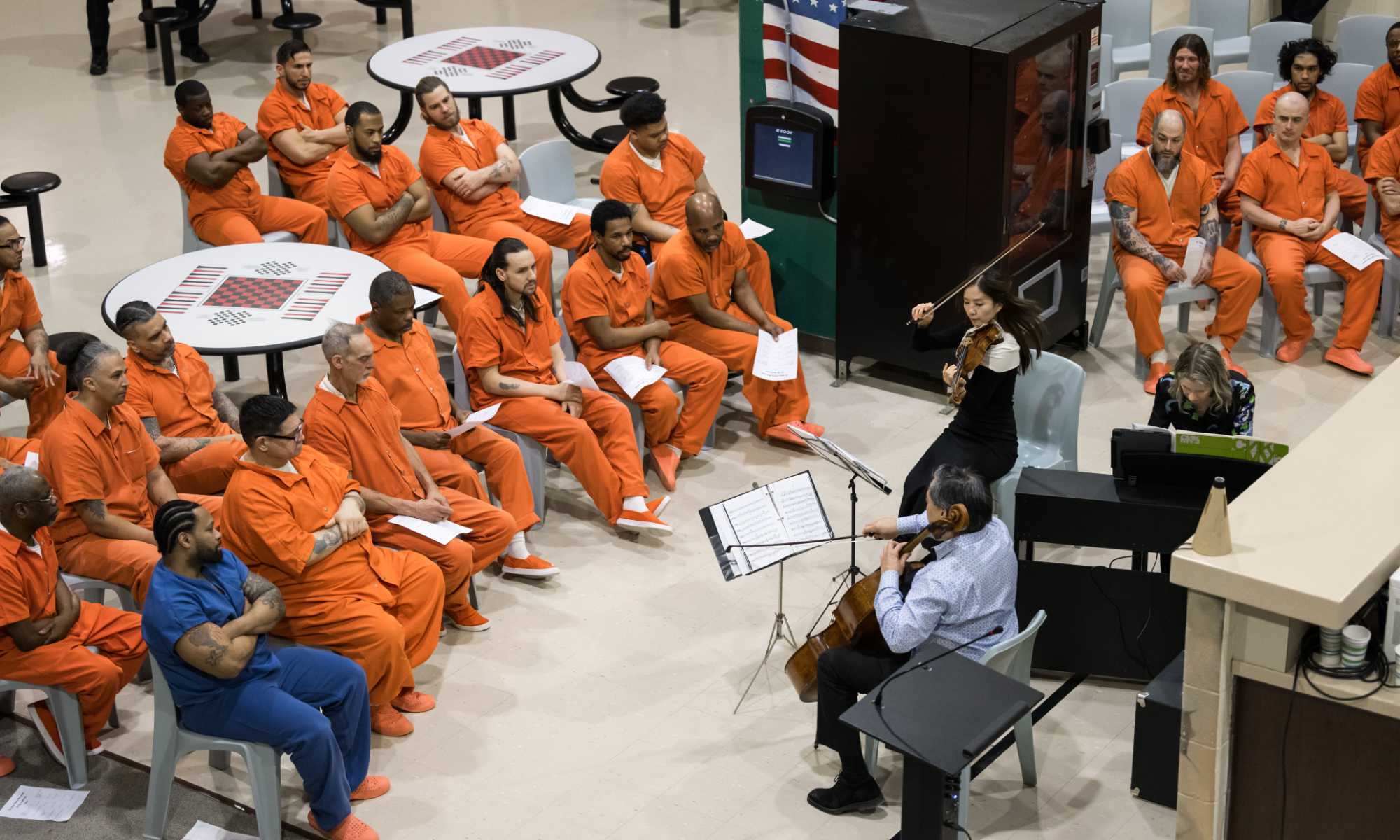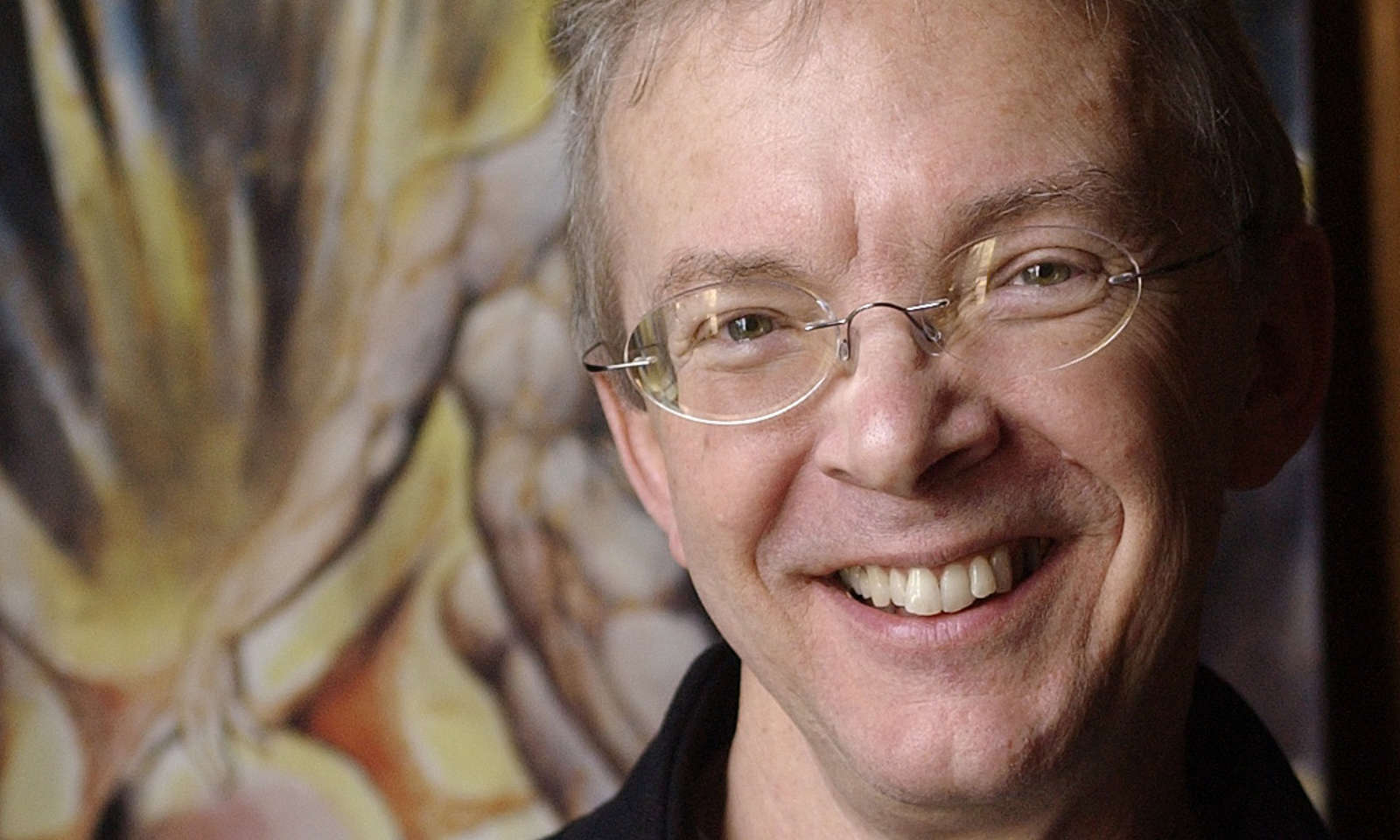Remembering eminent Rochester medievalist Russell Peck.
Russell Peck, a professor emeritus of English and the John Hall Deane Professor Emeritus of Rhetoric and Poetry at the University of Rochester, is being remembered as much for his eminent medieval scholarship as his excellence in teaching.
A renowned expert on the medieval poets Geoffrey Chaucer and John Gower, Peck died on February 20 at his home in Rochester at the age of 89.
Medieval literature can be “a bit of a hard sell,” says John Fleming, the Louis W. Fairchild ’24 Professor of English and Comparative Literature at Princeton University.
According to Fleming—a fellow medievalist, a friend of Peck’s, and a former professor of his daughter Demaree—anybody who can get undergraduates interested in Gower “is pulling off a pretty good trick.”
Peck was famous for his teaching, especially for an undergraduate Chaucer course that he started to develop in the 1960s. Student-generated course descriptions repeatedly called it “the single course not to be missed while an undergraduate at Rochester.”
“Russell was a rare professor who could do research at the highest level on the major authors of his canon, while at the same time making these texts accessible to undergraduates. He was a major Chaucer scholar. But above all, he was a fantastic teacher,” says Fleming, who insists on being described as an admirer. “He was my ideal of what a humanities professor ought to be.”
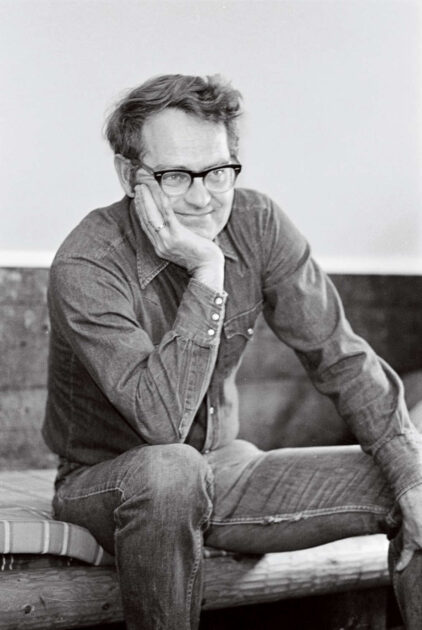
Opening the doors
Accessibility was always key. Peck was passionate about opening the doors not just to university students but also high schoolers. In the 1980s, supported by funding from the National Endowment for the Humanities (NEH), he began developing pilot courses that soon morphed into fully fledged summer seminars for both high school and college teachers.
His enduring legacy arguably lies in the trailblazing TEAMS Middle English Texts Series, also referred to by its acronym METS, which offers accurate and accessible editions of non-canonical medieval writing. As permanent general editor, a position he held until his death, Peck shepherded more than a hundred volumes into print, which have reached tens of thousands of readers and millions of online users. Hosted by the University of Rochester, the METS website allows for free digital downloads and receives nearly one million hits every year from about 150 countries.
“He really put his stamp on everything that came through,” says Anna Siebach-Larsen, an associate editor for the series who has been the director of the Robbins Library and the Koller-Collins Center for English Studies since 2017, and who worked closely with Peck since then.
The series is a publication of the Rossell Hope Robbins Library, the University of Rochester, and the Teaching Association for Medieval Studies (TEAMS), together with Medieval Institute Publications at Western Michigan University, and is supported by the NEH.
The project has been described as “the single most influential enterprise for complex engagement with the Middle Ages,” says fellow Rochester medievalist Thomas Hahn, an English professor and Peck’s friend of 50 years. “It really epitomizes Russell’s dedication to educating simultaneously at the highest and the broadest levels.”
The force behind the Rossell Hope Robbins Library
Peck was the driving force, at times at odds with the University’s administration, behind bringing a medieval research collection to the University. In 1987, his efforts resulted in the Rossell Hope Robbins Library, a non-circulating collection of important medieval texts with comprehensive holdings across literature, history, art, and culture. Peck then convinced Alan Lupack to come onboard as the library’s first (and longtime) director, who remains an associate editor for the text series.
“The library’s existence is a testament to Russell’s far-reaching vision, indomitable will, and commitment to a generous and capacious ideal of scholarship, teaching, and fellowship,” says Siebach-Larsen.
Hahn recalls Peck’s charm, and at times stubborn determination, in pursuing on one hand the would-be donors, Rossell Hope Robbins and his wife Helen Ann Mins Robbins, while on the other hand making the case to the University that more resources were needed to accommodate the large gift.
As the day of the collection’s arrival drew closer, Hahn remembers it was all-hands-on-deck. At one point, Peck, his wife Ruth, Hahn, and Bette London—a fellow English professor and Hahn’s partner—were on hands and knees, assembling bookshelves in the new library. Then the two men jumped into a rented truck and drove for four hours to the Robbins’s house in Saugerties, south of Albany, to load up and finally bring the trove to Rochester. (Peck subsequently wrote in loving detail about the donors in the University’s Library Bulletin 40, 1987–88).
He was “indefatigable,” says Siebach-Larsen. Peck is also remembered for his midnight Chaucer readings in the 1970s and 80s that lured both students and professors to the living room of the Medieval House on campus.
One of them was Debra Kronenberg ’74, who wrote in a 2012 letter to the editor of the Rochester Review that during those readings the “text came alive off the page” and that “[t]hose late evenings were the height of my time at Rochester.”
Rural beginnings pave the way to Princeton and Rochester
Born and raised on a dairy farm near Riverton, Wyoming, Peck was both captain of the football team and class valedictorian at his high school. Upon graduation, as a Rochester Review story from 2012 recounts, the then 18-year-old embarked on a daunting solo trip from Wyoming across the country to start his studies at an East Coast Ivy League, sight unseen; he went on to earn a bachelor’s degree in English from Princeton in 1956. Seven years later, he earned his PhD from Indiana University for his dissertation on number symbolism and the idea of order in the works of Chaucer.
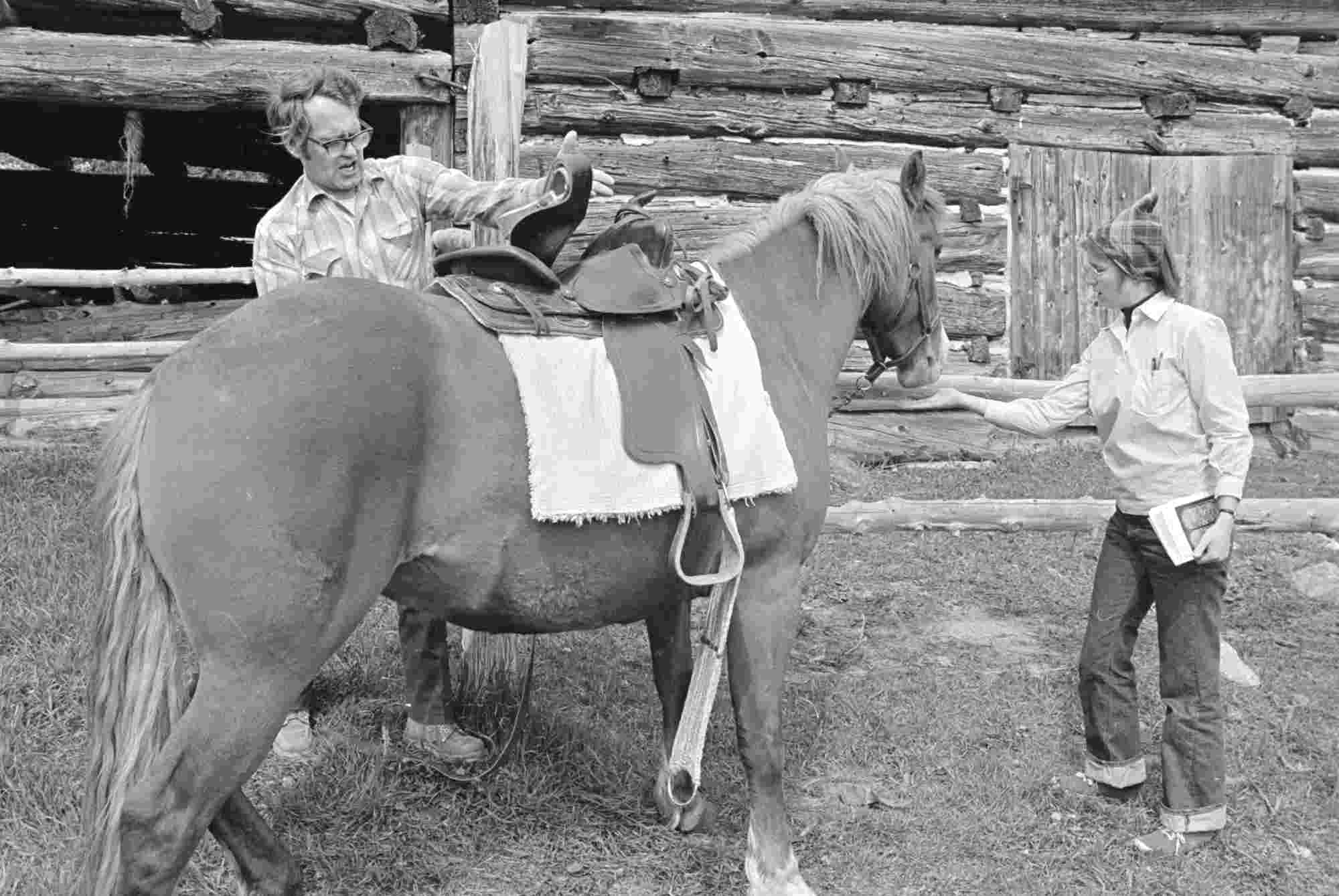
Over the span of his long career, Peck made major contributions to the study of the most important English vernacular writers of the 14th century, writing highly original essays on Chaucer in a learned and clear style. His frequently cited analysis of the structure of The Canterbury Tales examines the influence of numerological principles of composition found in many medieval and Renaissance works of art. Some of these principles are based on the so-called golden number or golden section, a mathematical ratio thought by philosophers since ancient times to be a revelation of the divine mind.
In 1961, Peck arrived at Rochester, first as an instructor and then, rising steadily through the faculty ranks, finishing with a named professorship.
Along the way, he garnered many prestigious prizes, among them the 2015 Medieval Academy of America’s Robert L. Kindrick-CARA Award for Outstanding Service to Medieval Studies, and was named Professor of the Year in 1983 and again in 1985 by the Council for the Advancement and Support of Education.
During his 53 years of official service (and then some) at the University, he won not only most of the coveted teaching prizes but also the University Presidential Medal of Honor in 2009. A member of the Faculty Senate, the Faculty Council, the director of both the Drama House the Medieval House, and the University Orator from 1998 to 2005—Peck seemed to be everywhere.
He once told his family that he was happiest at a fast pace: “The busier I am, the better I feel.”
Fans and champions of theater
True theater aficionados, Peck and his wife Ruth, the key collaborator in many of his endeavors, ran the University’s Theatre in England program for 21 years. During the two-week event, held every winter break, the couple shepherded a group of students to Shakespeare’s birthplace in Stratford-upon-Avon and London—often taking in two plays a day.
“Charismatic—Russell was the kind of guy who would’ve made a great actor,” says his friend and former Rochester colleague David Jeffrey, who is now the Emeritus Distinguished Professor of Literature and the Humanities at Baylor University.
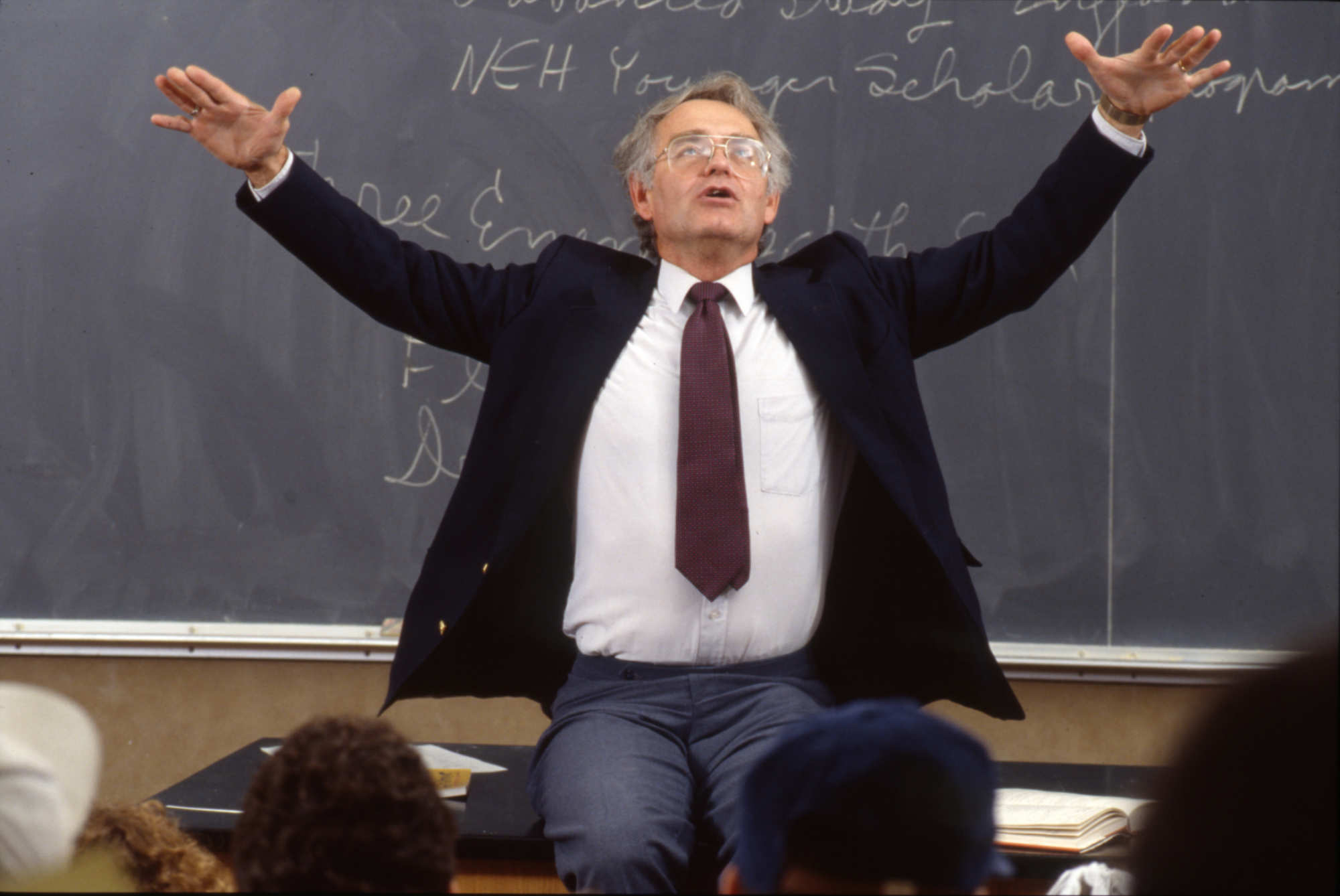
When Peck finally decided that the time had come to pass the program’s mantle to a younger colleague, he immediately invented an alumni theatre in London course that takes place each March. “It’s ongoing, and this year, for the first time, people will see the plays in London without him,” says Hahn.
In 2013, University Life Trustee Janice Willett ’78S (MBA) and Joseph Willett ’75S (MBA), along with other alumni, endowed a faculty position in honor of the then longest-serving active faculty member and his wife, Ruth, who was very much part of Peck’s endeavors.
“I cherish the memories from my many theatre experiences with them in London and in Stratford, Canada—two shows a day, every day, with lively and insightful discussions,” remembers Trustee Willett. “The Peck Artistic Directorship will always be something that I am enormously proud to have helped establish.”
Nigel Maister, the inaugural and current holder of the Russell and Ruth Peck Artistic Directorship for the University’s International Theatre Program, calls Peck “a champion of all theatrical work at the University of Rochester over many, many decades.” Peck’s support of the program, the Drama House, the English department, and his “amazing stewardship” during the theatre trips to England “were transformative in the lives of countless undergraduates and indeed members of the whole UR community.”
Another tangible that remains is the Russell A. Peck Theatre Library, which contains hundreds of volumes of play texts donated by the Pecks.
Academia, family, and farm life—intertwined
Academia, family, and farm life became interwoven threads running through his life.
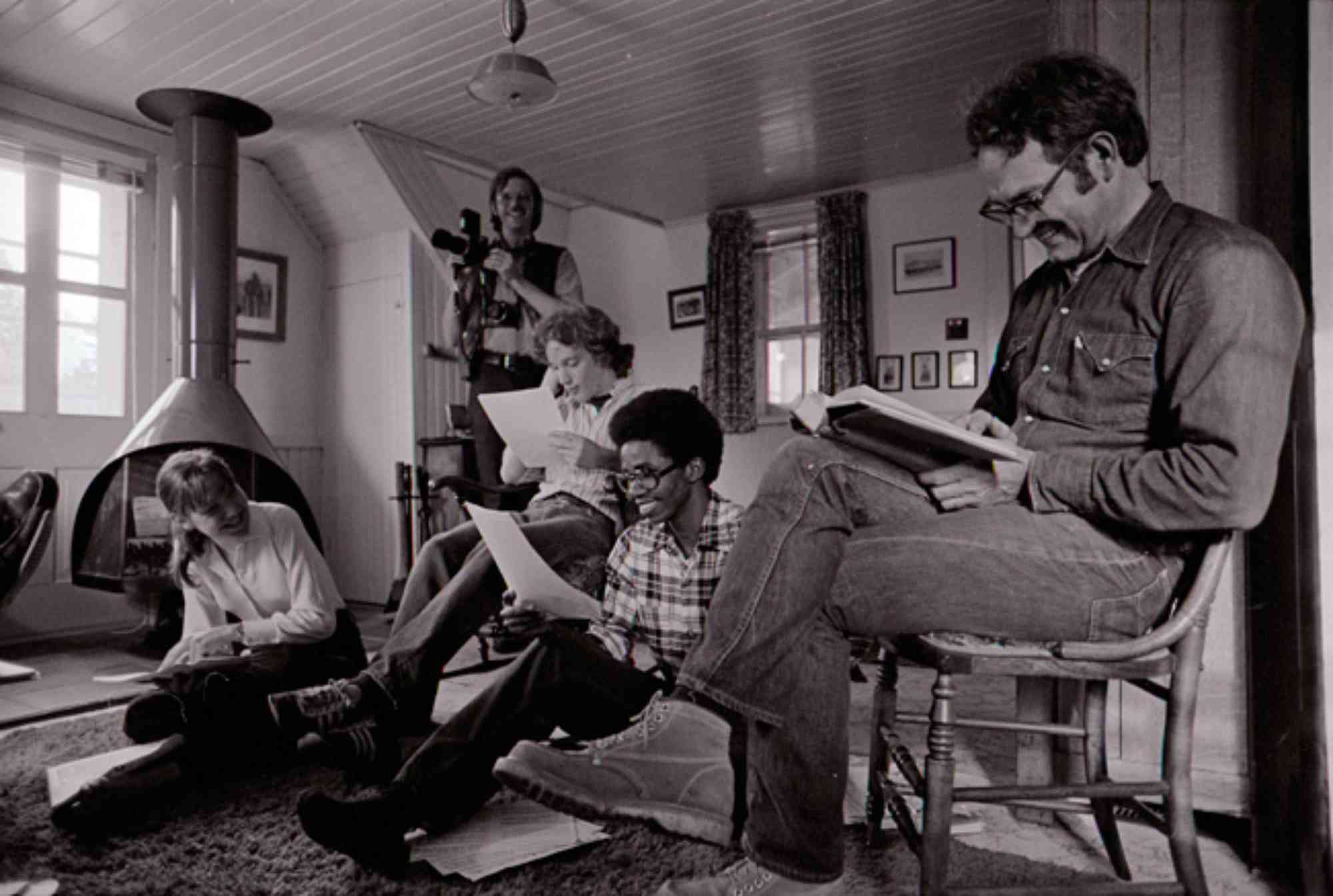
In 1972, while on sabbatical, Peck purchased a farm in Canada in a remote corner of the Ottawa Valley to recreate his own farm experience for his children, while extending the boundaries of his classroom. According to Gunther Peck, the youngest of his children, the farm was “no retreat, but a lifelong site of discovery and learning about the beauties of the natural world, the redeeming values of farming and gardening, and the redemptive power of storytelling.”
Family was central to his life’s work and Peck clearly applied some of the same principles to teaching.
A Rochester Review story from 1976 describes a literature class Peck was teaching that summer at the family farm in Canada. The course included plenty of reading, in addition to parlor games, singing, building fires under the moonlight, and even the occasional impromptu cattle herding session. “It became apparent that what Peck was doing, besides conducting a class outside of a classroom environment, was giving his students experiences in rural living,” wrote the story’s author.
“In this life there are givers and takers. Russell was a giver,” says Jeffrey. “You always got more from your friendship with him than he got in return. Russell was that person others liked to be around.”
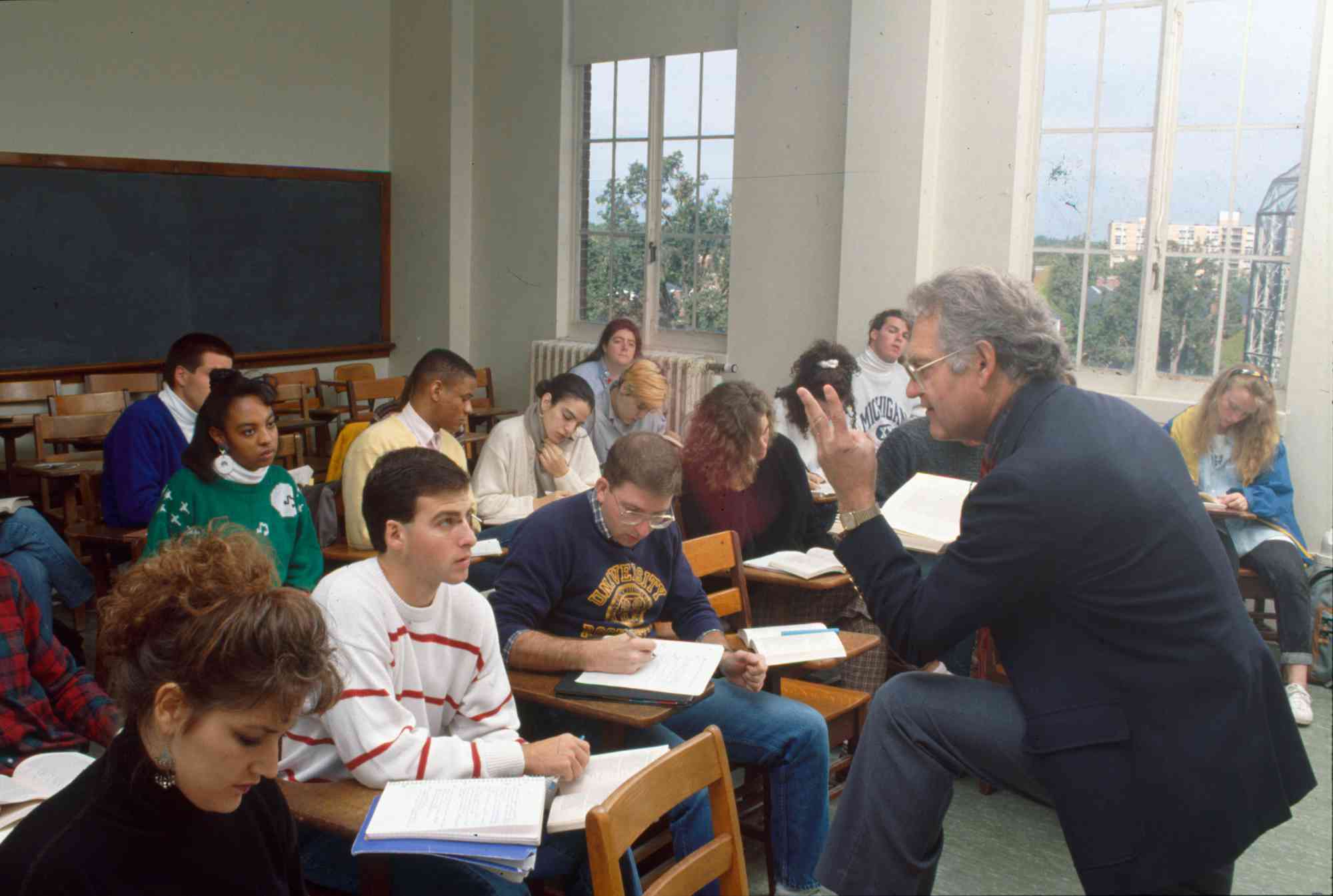
A retirement of sorts
In 2015, at the age of 81, Peck retired officially and was awarded emeritus status in recognition of his more than five decades of service to the University.
Yet, unsurprisingly to anyone who knew him, he wasn’t about to quit.
Instead, he was back almost daily, dropping into the Robbins Library where he’d taken up an office, working away on the latest editions for the Middle English Texts Series or his own writing.
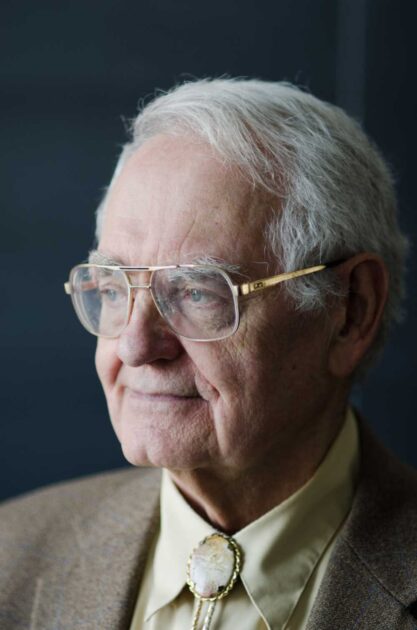
He remained a “very, very active scholar,” says Siebach-Larsen.
From time to time, he’d bring along framed artwork, either his own or a donation—ranging from author portraits of Flannery O’Connor, Herman Melville, and William Shakespeare to depictions of Romeo and Juliet and medieval prints—to add to the flair of the library. Secretly, he kept a toolbox with an electric drill under his desk that he would pull out, certainly against regulations, to hang up the pictures or undertake quick repairs.
During the pandemic, his visits to campus became rarer.
The last time Peck set foot in the Robbins Library was for a METS editorial board meeting on January 19, mere days before suffering a stroke. To the end, he reviewed every single volume—“exacting and conscientious,” says Siebach-Larsen.
“I will miss his extraordinary enthusiasm, his mischievous sense of humor, and even the ways in which he managed to get people to do what he wanted without their realizing that they were agreeing to do it,” she adds.
Former Rochester student Michael Livingston ’04 (MA), ’06 (PhD) once asked Peck, who had been his doctoral adviser, how he could ever repay him. According to Livingston, Peck “smiled that warm smile, nodded, and told me what I already knew: ‘Just do the same for your own students when it’s your turn.’”
After leaving Rochester, Livingston joined the faculty of The Citadel in Charleston,
South Carolina, where he now serves as Distinguished Professor. “I am trying, Russell,” Livingston wrote in a 2012 letter to the editor of Rochester Review. “We all are. And if we can have half the impact that you have had, we will be most fortunate indeed.”
He added, “Gower drew back his arrow, but you made it fly”—a reference to Chaucer’s friend and fellow poet.
Peck is survived by his wife Ruth; his children—Demaree, Nathan, and Gunther, 10 grandchildren, and one great-grandchild.
A memorial service is scheduled to be held on campus at the Interfaith Chapel on April 29 at 11 a.m., followed by a reception.
Remembering Russell Peck
A 2012 Rochester Review story captured how Russell Peck inspired students and colleagues as an academic ‘force of nature.’
Send your tributes, condolences, or memories of Russell Peck, which will appear on the English department’s messages and condolences page.
Donations in Peck’s memory can be made to the Russell A. Peck Memorial Fund.


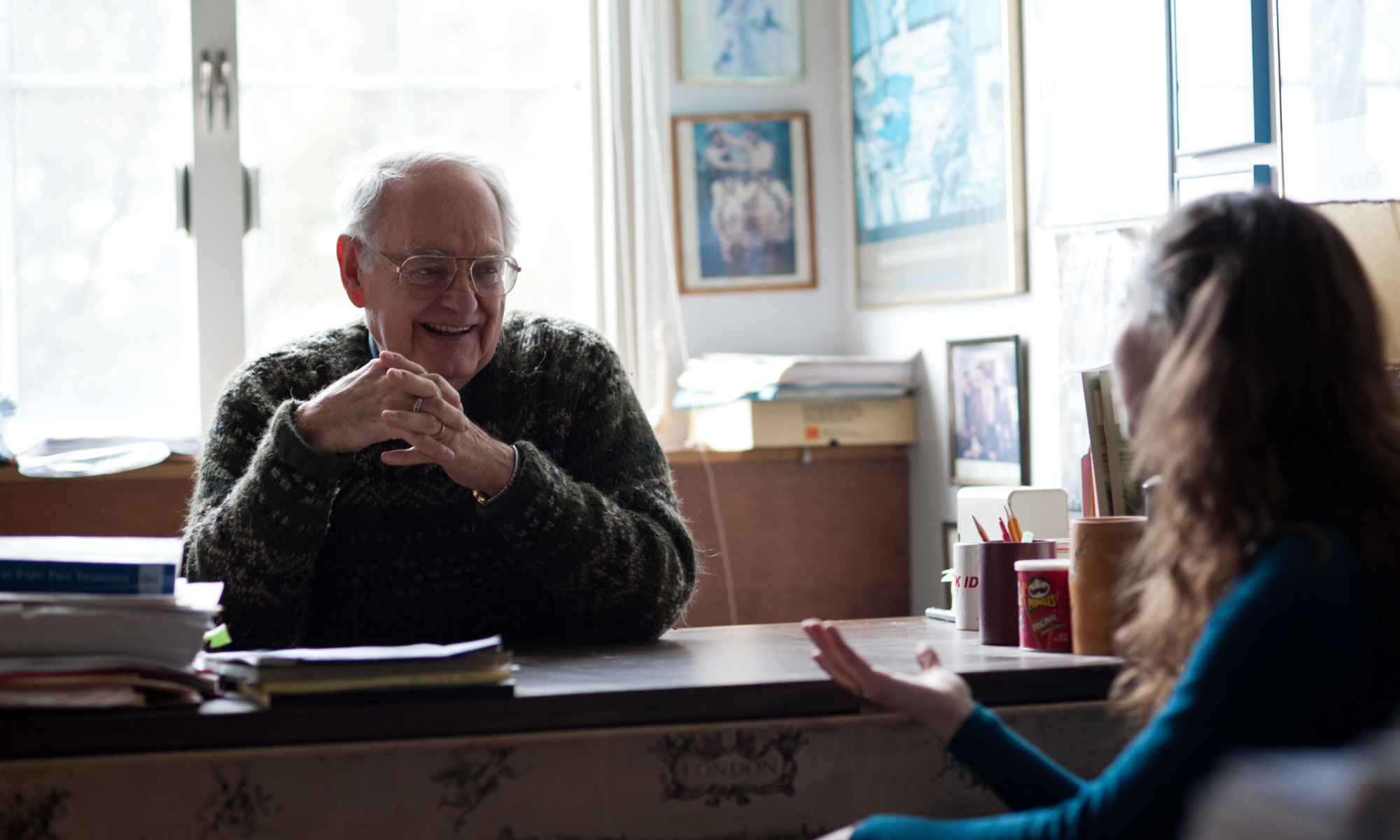 The Professor’s Tale
The Professor’s Tale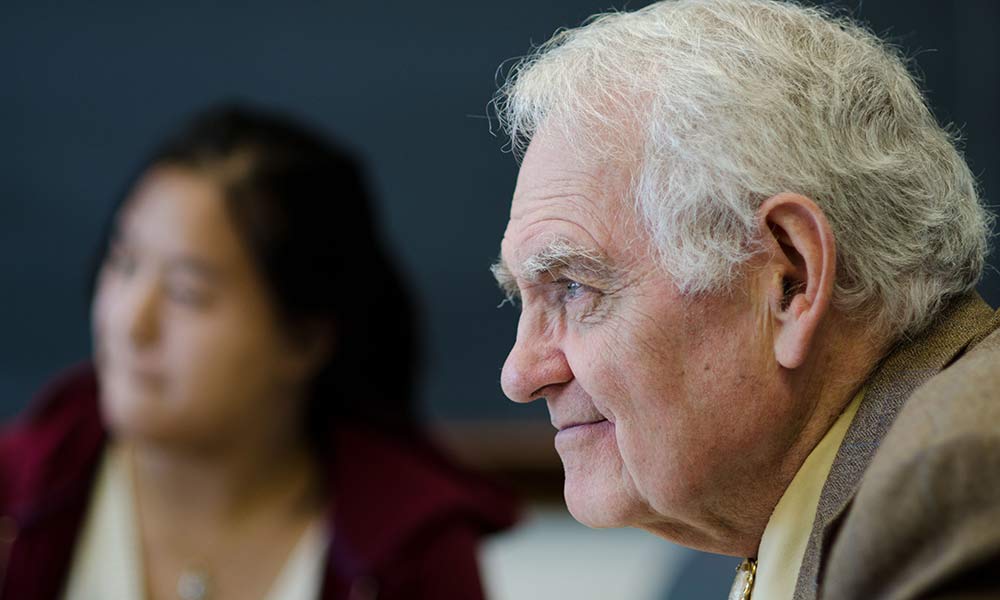 Share your thoughts
Share your thoughts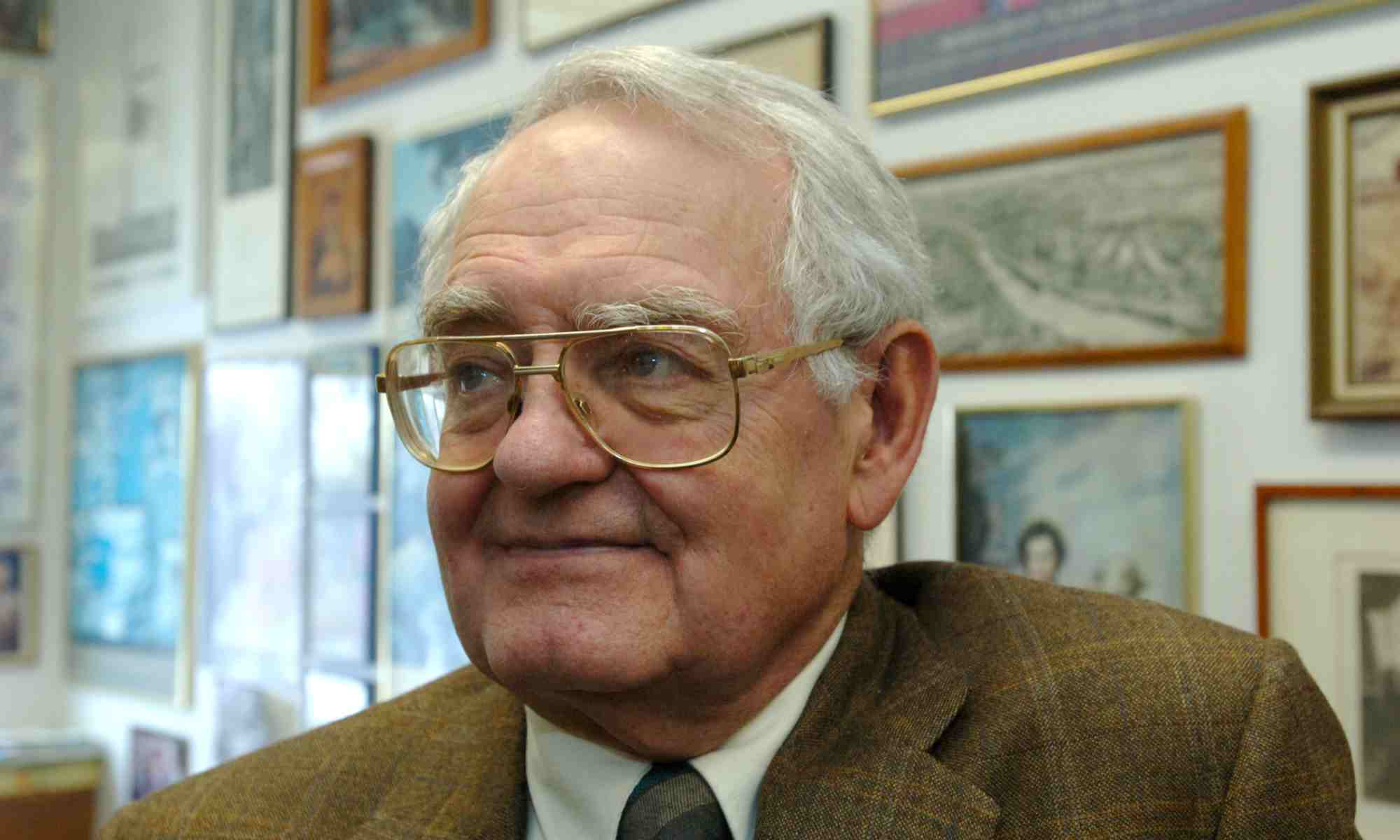 Make a gift
Make a gift